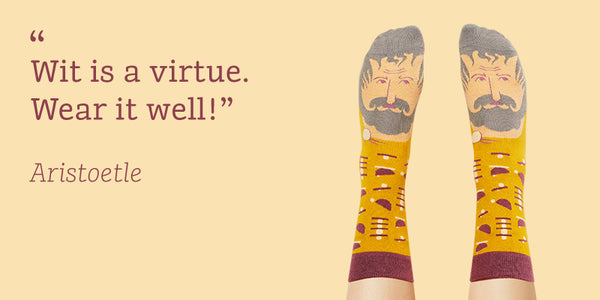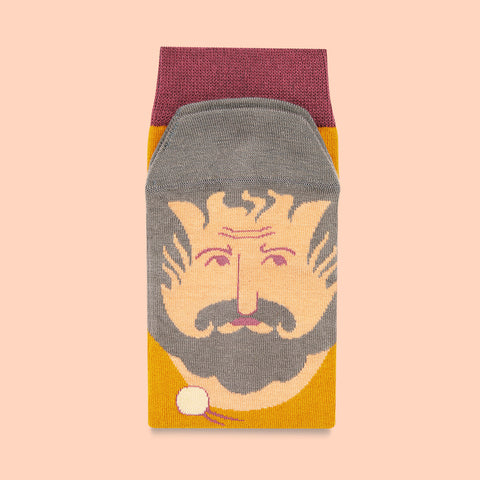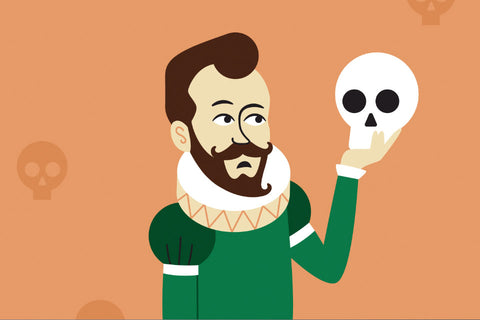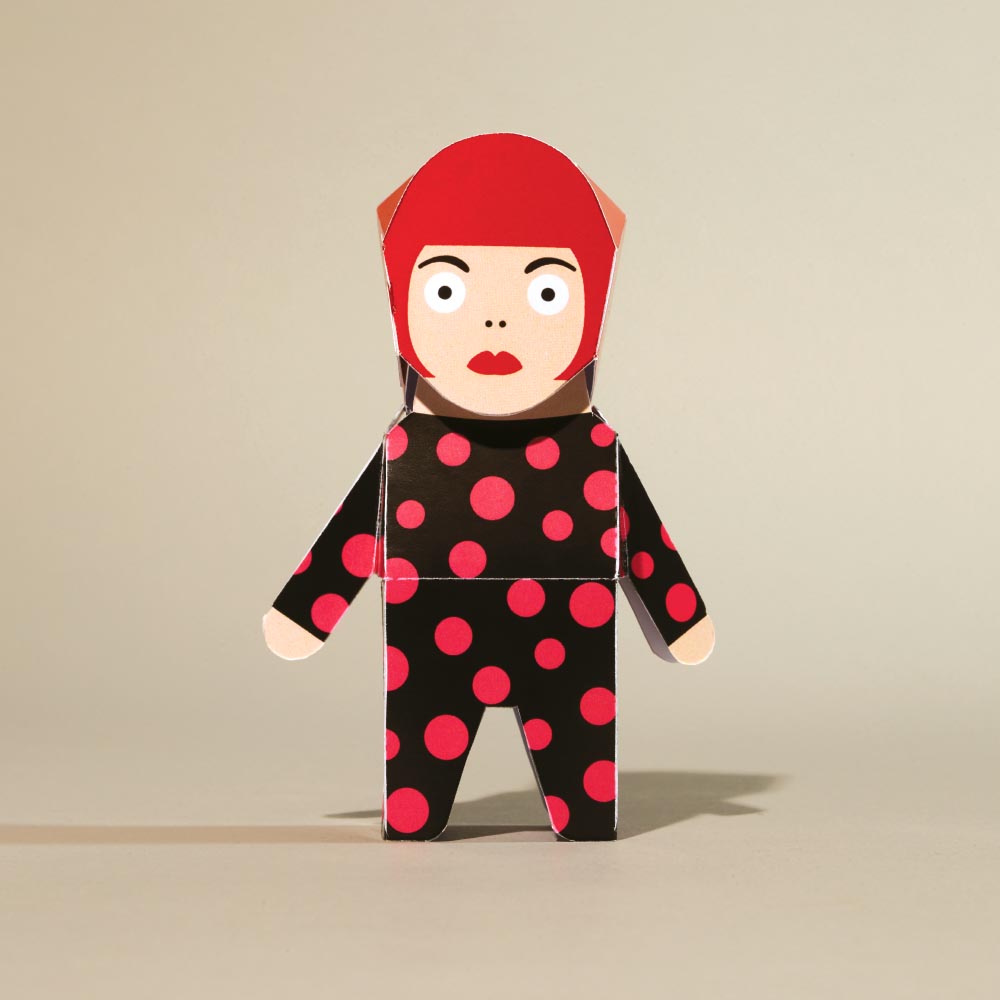Philosophers like to deal with the big questions: What is knowledge? Why are we here? What is the meaning of life? It’s serious stuff, so we wanted to find out whether history’s greatest minds also had a great sense of humour.
From feigning ignorance to performing skits in marketplaces, let’s travel back in time to celebrate the sillier side to this serious subject.
Isn’t it ironic?
Socrates is credited with being the founding father of Western philosophy and was a big believer in asking lots of questions. In fact, he is often quoted as saying, ‘The only true wisdom is knowing you know nothing’. According to his student Plato, Socrates liked to feign ignorance to encourage his opponents to make statements that he could then challenge.
This is a technique known as Socratic irony – and you can have a lot of fun with it. For example, if a person argues that plain socks are fantastic (a statement ChattyFeet would wholeheartedly disagree with), you could challenge them by asking, ‘Do you not like to stand out from the crowd?’
Lamp-ooning your audience
Diogenes was one of the founders of the Cynicism movement and perhaps the most eccentric of all the Ancient Greek philosophers. In fact, Plato once described him as ‘A Socrates gone mad’.
He had amusing ways of making his points. It’s said that he used to walk around a marketplace in broad daylight carrying a lantern. When onlookers would ask him what he was doing, he would proclaim that he was searching for an honest man.
There is also a story about Diogenes in which a group of people referred to him as a dog and threw bones at him. According to this anecdote, Diogenes promptly lifted his leg and proceeded to urinate on them.
The importance of being silly
Wittgenstein was a philosopher from the 20th century, who some consider to be one of the most important thinkers of his time. He was famously passionate about his subject, once waiving a hot fire poker at his opponent in what can only be described as a heated debate.
He also famously said, ‘If people never did silly things, nothing intelligent would ever get done’, suggesting that nothing great ever happens in a world where human beings aren’t allowed to make mistakes.
Between a buffoon and a boor
For Aristotle, living a good life (flourishing) was all about finding the golden mean – a middle point between two extremes. For example, between recklessness and cowardice, you would find courage.
When it came to having a laugh, Aristotle felt good humour fell somewhere between being a buffoon (too much playfulness) and a boor (finding fault in everything) – a type of humour he called wittiness or ‘eutrapelia’. A person with wit exudes a pleasant type of good-natured fun and is a joy to be around. They aren’t a practical joker or someone who never smiles. They could be someone who wears witty sock characters on their toes…
Get your thinking socks on
Great minds love a great pair of socks, and our philosophy-inspired sock characters are the wisest choice for your toes. Say hello to Aristoetle, Platoe and Socratoes and start thinking on your feet.














